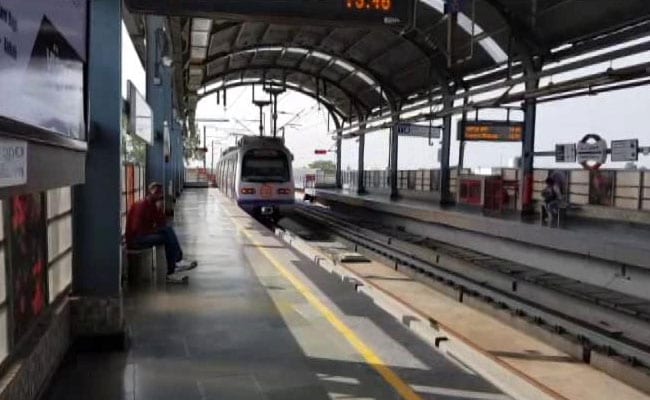Encouraging the use of public transport is key to fighting pollution and reducing congestion. In fact, the Delhi Master Plan aims to have 80 per cent ridership using public transport by 2021. However, only 54 per cent of motorised users take public transport currently, and over 40 per cent still choose cars or two-wheelers. Experts say better integration of public transport can be critical to encouraging commuters to use it.
To test the integration of public transport in Delhi, NDTV made a 6-km journey that would take 15 minutes by private transport, but only using public transport and the DMRC travel card.
The metro, accessible by the DMRC travel card, arrived in minutes. Three stops and six minutes later, it was time to switch to a bus. There were no informational notices on bus options, so the internet had to be consulted for bus options. The bus stand, on an arterial Delhi road, was minutes away, and the buses came frequently. But two buses said they will not accept the metro card.
However, all buses are supposed to. According to the Delhi government, the DMRC's travel card can now be used in every DTC and cluster bus - a common mobility card.
Great News For Delhites..
- Aam Aadmi Party Delhi (@AAPDelhi) August 24, 2018
Metro card is now valid on all DTC and Cluster Buses. pic.twitter.com/hbE7HwZKZZ
While a common payment method is an important part of integration, it also should not levy what experts call an "interchange penalty" -- having to pay fares every time you switch public transport.
"The public transport system should behave as one," said Gaurav Kumar Dubey, the programme manager for sustainable mobility at the Centre for Science and Environment. "You should not have to pay a penalty for changing from metro to a bus."

The metro, accessible by the DMRC travel card, arrived in minutes
According to Mr Dubey, there is more integration possible beyond payments. System integration would mean that bus and metro stops are close to each other, and switching is quick and easy. Information integration would mean that one can easily find out exactly when the next metro or bus is due, and where one needs to go to find it.
During NDTV's trial run, the third bus accepted the card and charged more money. But the conductor said he gets only about 10 requests to use the metro card, amongst thousands of passengers, and the machine freezes up often.
Commuters have heard about the new common card, but are surprised they work. Others prefer to keep cash handy, as they say the card usually doesn't work.

The bus stand, on an arterial Delhi road, was minutes away, and the buses came frequently. But two buses said they will not accept the metro card.
"It'll be convenient but we are also afraid that what if they reject the card?" said Hemant, a passenger. "It'll be great if the fare only gets deducted once."
At the final bus stop, the destination was still 850 m away, but there was no further public transport available. The trial 6 km journey was cashless and cost Rs 21, but with an 11-minute walk it took almost 40 minutes to complete. Experts say that with better integration public transport can be faster, cheaper and better informed, making it a more appealing option for every citizen.
For more Delhi news, click here
Track Latest News Live on NDTV.com and get news updates from India and around the world

